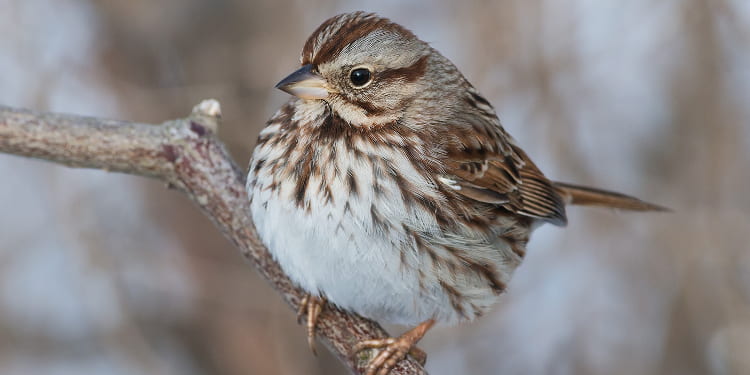Many North American migratory birds are shrinking in size as temperatures have warmed over the past 40 years. But those with very big brains, relative to their body size, did not shrink as much as smaller-brained birds, according to new research from Washington University in St. Louis. The study is the first to identify a direct link between cognition and animal response to human-made climate change.
The body size changes in songbirds are small but significant, affecting familiar species of sparrows, warblers and thrushes. In fact, the size changes are so pervasive that some scientists have suggested that reductions are a universal response to warming. But new research published in Ecology Letters shows that bigger-brained birds have been able to out-think shrink, at least to a certain extent.
“As temperatures warm, body sizes are decreasing,” said Justin Baldwin, a PhD candidate in the laboratory of Carlos Botero, PhD, assistant professor of biology in Arts & Sciences at Washington University. “But larger-brained species are declining less strongly than small-brained species.”
Baldwin and his co-authors analyzed information on some 70,000 birds that died when they collided with buildings in Chicago from 1978 to 2016. They augmented this vast dataset, first published by researchers at the University of Michigan, with new brain volume measurements and lifespan data for 49 of the 52 species of North American migratory birds included in the original study.
Birds that had very big brains, relative to their bodies, had body size reductions that were only about one-third of those observed for birds with smaller brains, the Washington University scientists discovered.
And bigger brains matter for birds.
